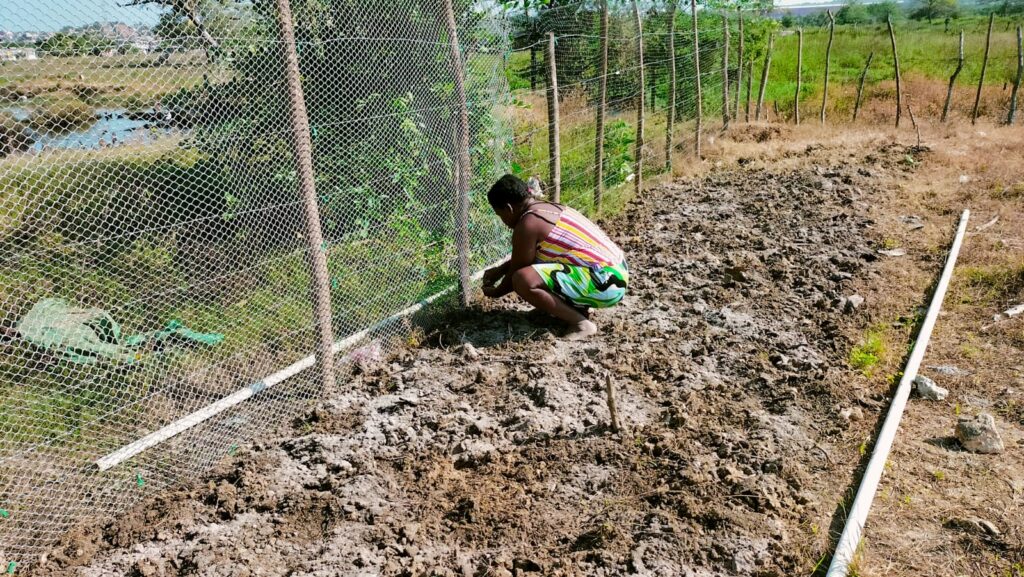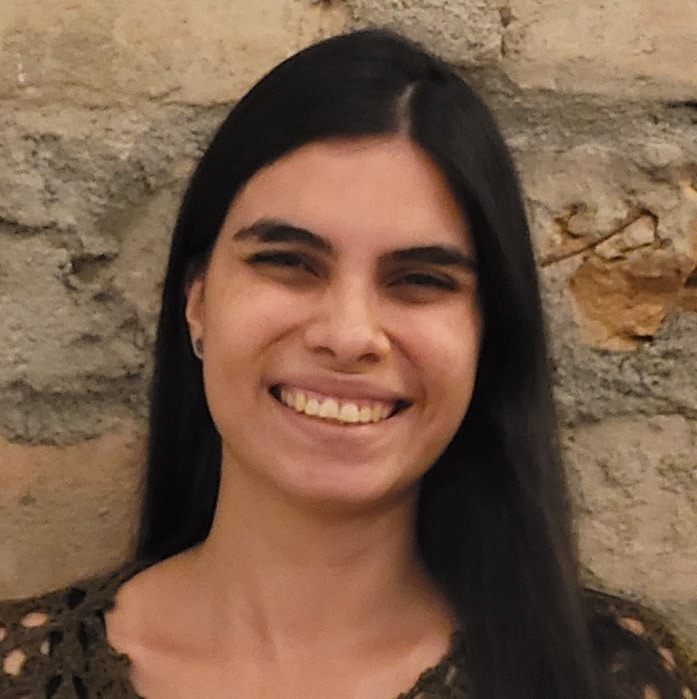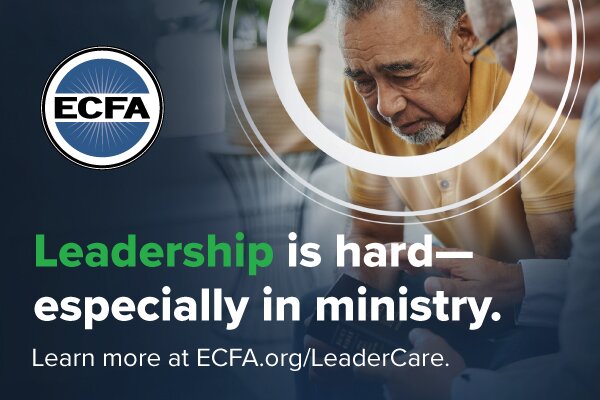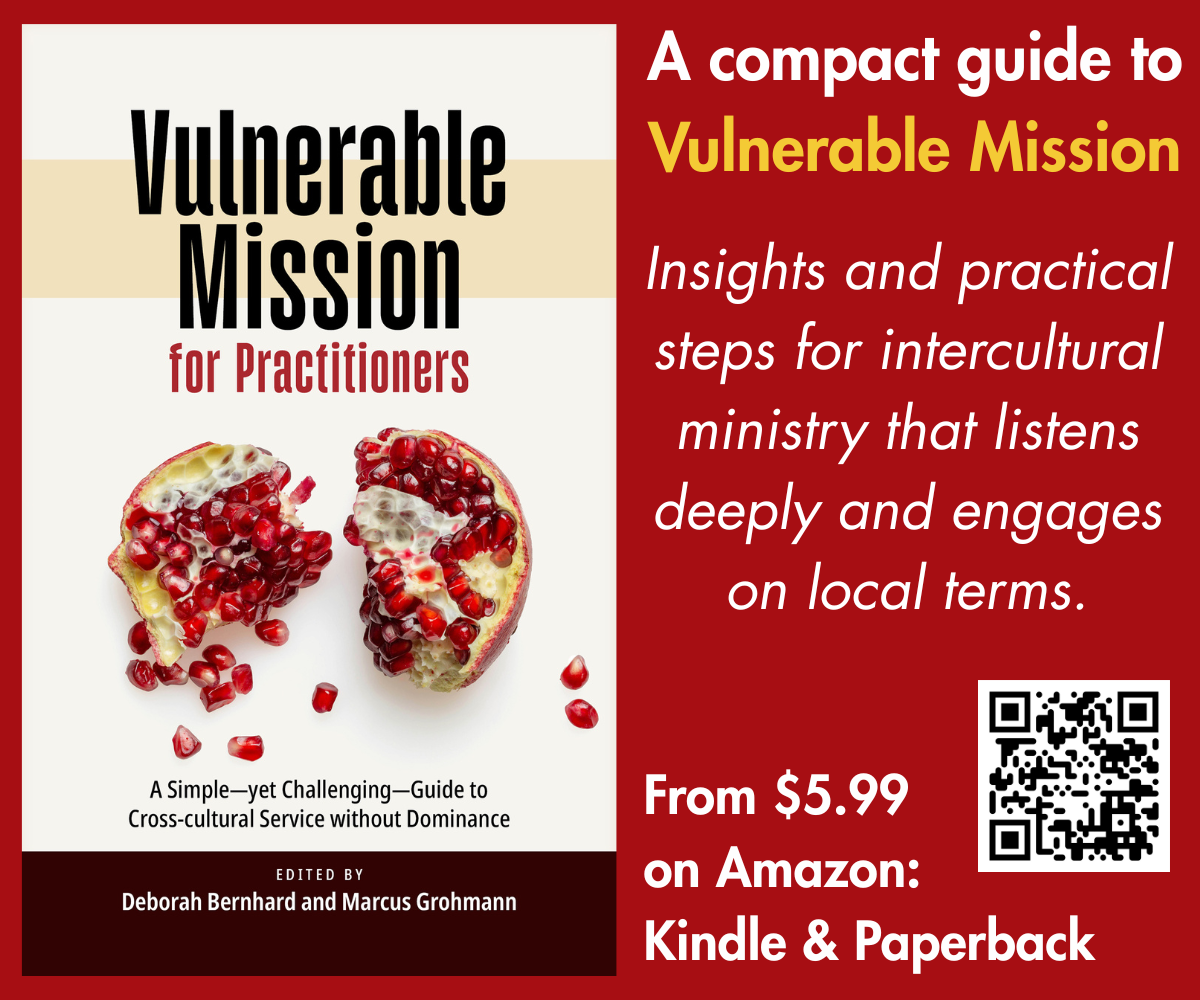EMQ » July – Oct 2024 » Volume 60 Issue 3

Villa Hermosa, Colombia: A woman plants seeds in an urban garden. Photo courtesy of Ximena Cardona Bastidas.
Unity in Diversity
Summary: God created a world full of variations, and we move within this diversity. God designed these differences to foster complementarity, interdependence, and innovation. But all of us, through the union in Christ, work together to fulfill the same objective: that no one is left without hearing, understanding, and responding to the word of God.
By Ximena Cardona Bastidas
When we use the word diversity in our context today, many people immediately think it refers to diversity of sexual and/or gender identity. This narrows the meaning of this word and keeps us from thinking of other definitions. When we use this word in a Christian context, we define diversity differently. God created a world full of variations, and we move within this diversity. God designed these differences to foster complementarity, interdependence, and innovation.
Romans 12:4–5 says, “For just as each of us has one body with many members, and these members do not all have the same function, so in Christ we, though many, form one body, and each member belongs to all the others” (NIV).
The body of Christ, the Lord’s church, is founded on differences: different cultures, people, gifts, ministries, among others. But all of us, through the union in Christ, fulfill the same objective: that no one is left without hearing, understanding, and responding to the word of God.
Contextualization for the Arhuaca
For several years, we have been carrying out church planting and multiplication processes in Colombia and Venezuela through Satura Colombia (la Fundación Satura Colombia). We have been able to reach many diverse communities. Differences in geographical location, shared culture, age, level of schooling, and even gender force us to think of different strategies to bring all these people closer to the one true God.
As an opportunity to fulfill the Great Commission, Satura Colombia has facilitators who are responsible for accompanying pastors and leaders throughout their national territory. These facilitators have a fundamental characteristic: they are missionaries in their own territory, which means that the tools used to impact with the message of Christ are contextualized to the culture.
An example that illustrates the diversity, but at the same time the mutuality in Christ, can be seen in the work done with the Arhuaca ethnic group in the Sierra Nevada of Santa Marta, Colombia. For many years multiple Christian denominations have tried to evangelize from a lack of knowledge of the culture. They have shown a God who wants all people to look exactly the same (in the way they dress, in the accessories they use, in the way they wear their hair, etc.). As a result, the Arhuaca were closed to the message of Christ.
Two years ago, God placed a person of peace from the Arhuaca in the path of the facilitator Rubis Torres. She was a woman of influence, passionate about working with the women of her tribe and willing to talk about God’s love in her community. The question we asked ourselves as a team was: How can we bring the gospel of Christ to a different community that has been mistreated in the name of God? In response, we began a series of workshops to work with the women on a topic that is general to all cultures: maternity. Through conversation, stories, and games, we were able to generate the opportunity to talk about God as a father of love.
This message that unites us to the body of Christ has been taken to the Arhuacos. Many people have accepted the message through understanding their culture’s need for God love. The Spirit of God has worked so powerfully that the highest leaders in the Arhuacos community have allowed Bibles to be distributed and prayer to be said in meetings. In the different groups located in the territory, the gospel of Christ is reaching not only the women, but also the children.
Gardens in Villa Hermosa
Diversity brings people closer to Christ, and by working together, they can improve their quality of life. The Villa Hermosa neighborhood in the city of Cartagena, Colombia is an example of how God does this.
Villa Hermosa is a poor neighborhood inhabited mostly by people from the countryside displaced by violence. When they arrive in a city, they enter a harsh economic, social, and territorial reality. Even the land is uninviting. There is no water, it is extremely hot, and the ground is dust.
The Lord called church planting facilitator Berenice Luna to find a way to share the message of Jesus with the people who live in Villa Hermosa. At first, it was very difficult because you can only enter this neighborhood if you live there. As we joined Berenice in prayer walks, we asked God to help her find a person of peace in Villa Hermosa who would open the doors of his or her house and his or her heart.
We learned that the women of the community wanted to plant vegetables for their own consumption and thus, have a source of food for their families. With this idea and the power of prayer, the work of EcoSatura began. We implemented a home garden program to share the gospel of salvation and make disciples.
At first many people were skeptical because the environment didn’t seem suitable for planting practices. But the diversity of knowledge and our union in Christ allowed fruits of the earth and fruits for the kingdom of God to be harvested to the surprise of many.
Today, the church meets on Sundays in Villa Hermosa. They gather to praise God, to learn from his Word, and to give thanks for the miracles that he has done in the lives of the families that have followed him.
Hope for the Old and Young in Venezuela
While differences can be a path towards building together using each of our strengths, throughout history they have also led to conquest, destruction, and death. The death of Jesus (even though it is part of God’s plan of salvation) was driven by that lack of understanding and that desire to destroy what is different or outside the standards that are allowed by a culture, a political, or social idea.
Venezuela fits within this context. It is a place where people daily experience the consequences of a political, economic, and social crisis. Millions of Venezuelans have left their country to find better living conditions. But what about those who cannot leave? What about the children and grandparents who are abandoned under the promise that they will soon receive an allowance from relatives who leave?
La Colina is a small town located in the state of Táchira, Venezuela that is filled with elderly grandparents and children. In this place, we see a church planting process that demonstrates to this community that the gospel has no age distinction and God loves his children, no matter if they are 10 or 90 years old. A program called Soy Satura reaches the population by providing supplementary food.
The children are evangelized and discipled through Satura Kids, a program that seeks that the believer is affirmed in the faith, becomes a disciple of Jesus, is part of the church and multiplies. All the activities are designed to be done with children, and the biblical stories are narrated to achieve a greater connection with them.
Sharing the word of God through Satura Kids has been the door to bring the message to older adults. The children pay attention to the storytelling, answer questions, and then share what they’ve learned with the older adults in their lives. Undoubtedly, despite the economic, emotional, and social difficulties faced by this population, we see how God acts through children to grow a generation that knows him, but also for adults to receive his message.
Christ Unites Us
We are all different, but Christ unites us! As 1 Corinthians 12:4–6 (NKJV) says, “There are diversities of gifts, but the same Spirit. There are differences of ministries, but the same Lord. And there are diversities of activities, but it is the same God who works all in all.”
These words that Paul wrote to the church in Corinth should be a standard for the work of evangelism and discipleship that in which all Christians participate. We all have the same commission: “Go therefore and make disciples of all the nations, baptizing them in the name of the Father and of the Son and of the Holy Spirit,teaching them to observe all things that I have commanded you; and lo, I am with you always, even to the end of the age.” (Matthew 28:19-20, NKJV)
For three days in September 2023, in the city of Medellin in Colombia, we had the opportunity as the church of Christ – regardless of the city of origin, culture, denomination, ministry, gender, age, among others – to unite to celebrate church planting and multiplication in Colombia and Venezuela. It is in these spaces, in which we can appreciate what God does with his people and the true motivation that as Christians we should have.
Sharing times to thank God, to learn, and to listen to his Word strengthen the bonds of unity of all the parts that make up the body that we are in Christ. Observing the different things that God is doing through his people – whether that be Bible translation with indigenous communities, evangelizing migrants, or discipling to bring children and parents closer – we can see clear examples that differences do not divide us. Through Jesus Christ, differences unite us.

Ximena Cardona Bastidas. (ximena.cardona@saturacolombia.org) is the development and community coordinator for Fundación Satura, Colombia (Satura Colombia), saturacolombia.org.
EMQ, Volume 60, Issue 3. Copyright © 2024 by Missio Nexus. All rights reserved. Not to be reproduced or copied in any form without written permission from Missio Nexus. Email: EMQ@MissioNexus.org.







Responses